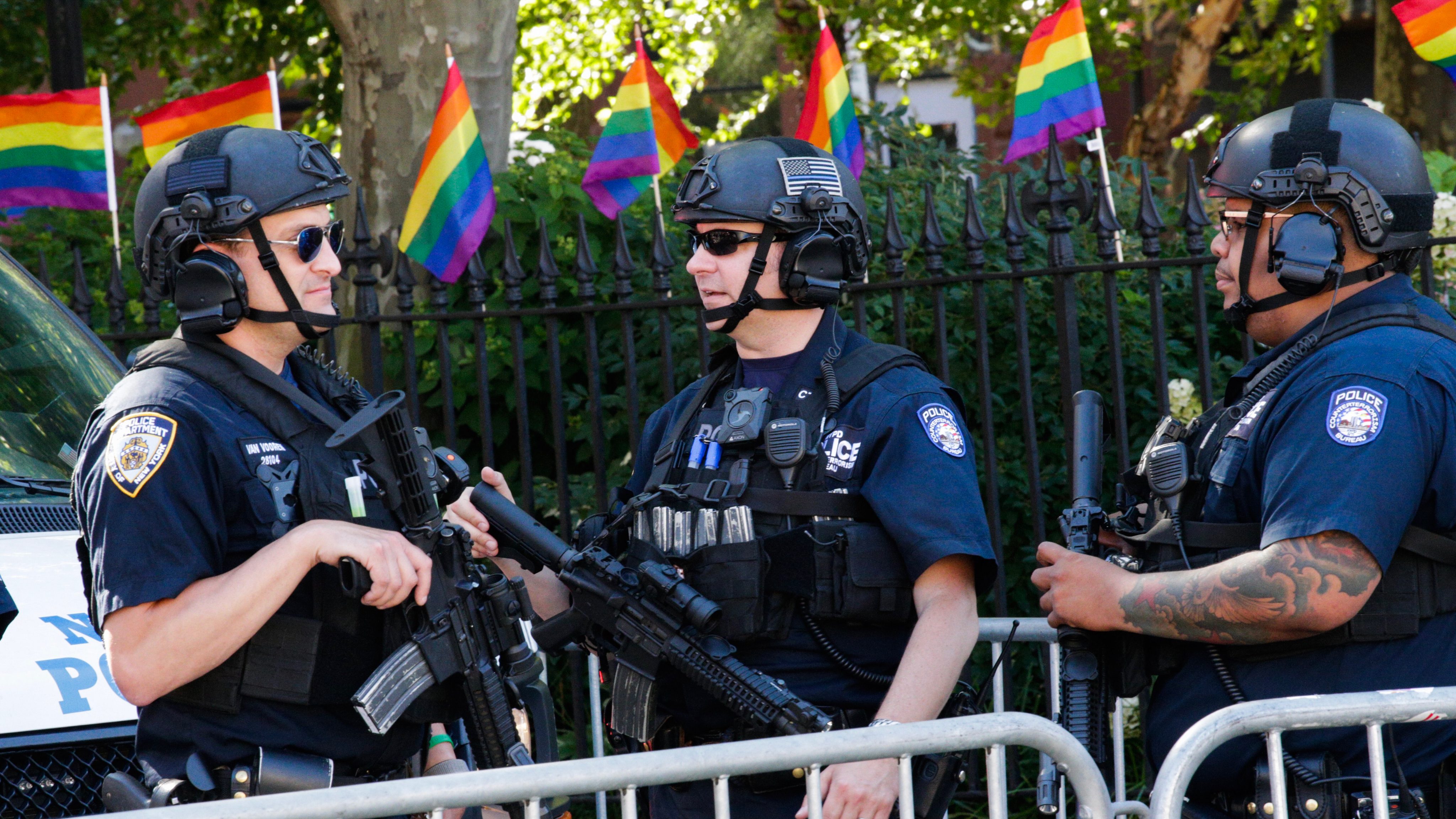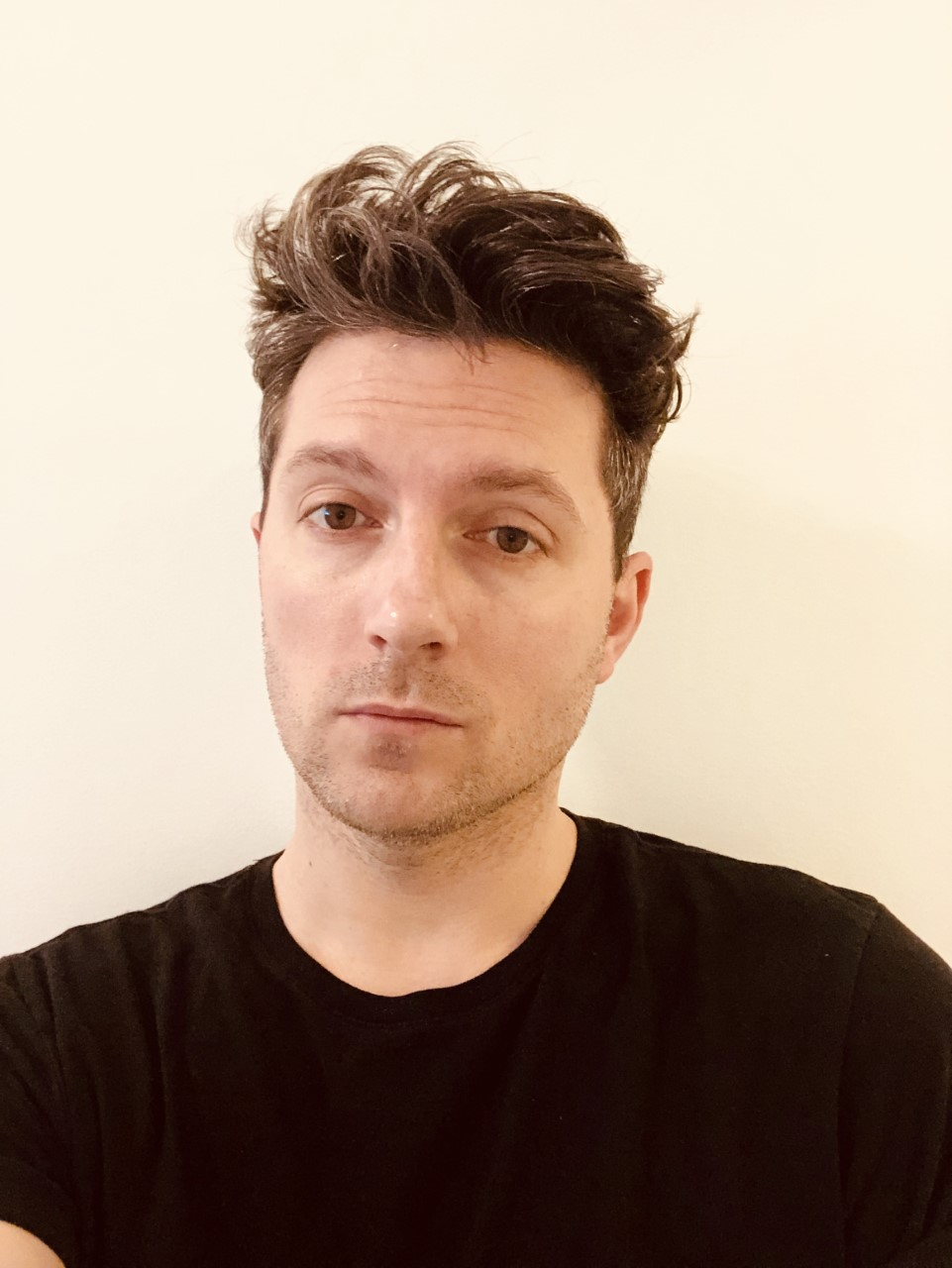

In the wake of widespread protests against police violence against people of color, NYC Pride is taking steps to decrease NYPD presence at its events. Over the weekend, Heritage of Pride, the organization that produces the city’s iconic Pride March and other official events, announced that beginning with this June’s festivities, “corrections and law enforcement exhibitors” will be banned from participating until 2025.
In a statement, NYC Pride said that it “seeks to create safer spaces for the LGBTQIA+ and BIPOC communities at a time when violence against marginalized groups, specifically BIPOC and trans communities, has continued to escalate. The sense of safety that law enforcement is meant to provide can instead be threatening, and at times dangerous, to those in our community who are most often targeted with excessive force and/or without reason. NYC Pride is unwilling to contribute in any way to creating an atmosphere of fear or harm for members of the community. The steps being taken by the organization challenge law enforcement to acknowledge their harm and to correct course moving forward, in hopes of making an impactful change.”
The organization will shift its increased security budget toward “community-based security and first responders, while simultaneously taking steps to reduce NYPD presence at events.” That includes hiring private security, employing deescalation techniques and efforts to keep on-duty NYPD officers at least one block away from in-person events. Of course, the change isn’t permanent. NYC Pride plans to re-evaluate law enforcement participation going into the 2025 Pride season.
At his daily press conference this morning, New York mayor Bill de Blasio called the move a mistake, surprising literally no one familiar with the his inconsistent record — to put it charitably — on police accountability and his inability to reign in police unions. “I believe in inclusion,” he said. “One of the issues is officers who are members of the LGBT community, wanting to march and express their pride and their solidarity with the community.” (Nowhere in the NYC Pride’s announcement does it say that individual police officers cannot participate in this year’s march.)
The announcement, which was originally planned for today, came on Saturday in response to a statement released by the Gay Officers Action League (GOAL) on Friday night. “The Gay Officers Action League (“GOAL”) is disheartened by the decision to ban our group from participating in New York City Pride. Heritage of Pride (NYC Pride) has long been a valued partner of our organization and its abrupt about-face in order to placate some of the activists in our community is shameful,” the statement reads. It also lists the group’s contributions to reform efforts related to the NYPD’s policing of the LGBTQIA+ community in the city.
“Heritage of Pride is well aware that the city would not allow a large scale event to occur without police presence. So their response to activist pressure is to take the low road by preventing their fellow community members from celebrating their identities and honoring the shared legacy of the Stonewall Riots,” GOAL President Brian Downey says in the statement.
What Downey neglects to acknowledge is that the uprisings that began on June 28, 1969, and gave birth to the modern gay rights movement in the US, were in direct response to routine violence and harassment of the queer community by the NYPD at that time. What officers like Downey view as progress just seems like more of the same to queer people of color, particularly Black and brown trans women. According to a 2013 study conducted by the Anti-Violence Project, transgender people of color were six times more likely to experience police violence than white cisgender people. It’s no wonder why seeing a phalanx of uniformed cops marching in the parade can put a damper on some people’s rainbow-drenched Pride weekend.
For years, Pride events — and the wider gay rights movement itself — have faced criticism for prioritizing cis white gay men and corporate interests. In recent years, alternative events like New York’s Queer Liberation March have popped up in an attempt to reclaim the movement and revive its activist spirit. In that context, NYC Pride’s move to ban cops certainly feels long overdue.














